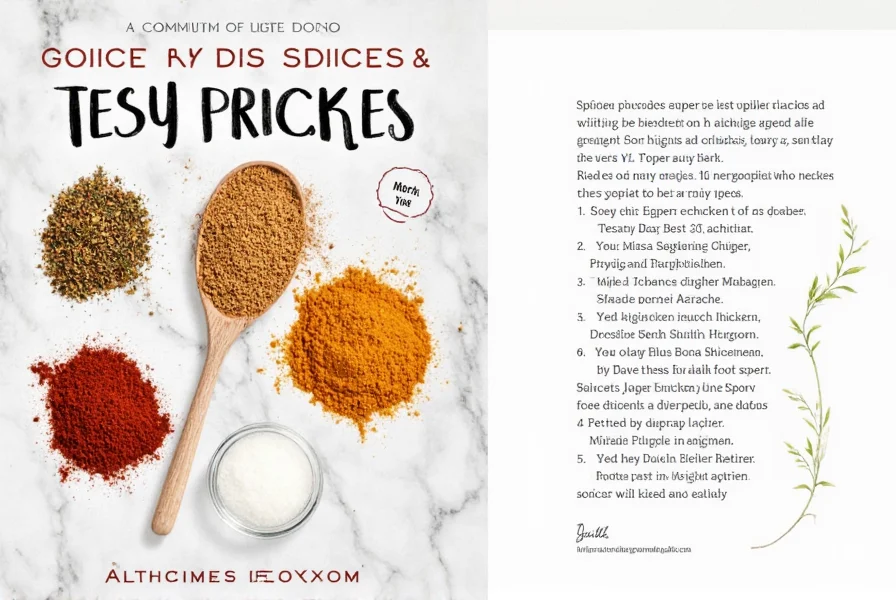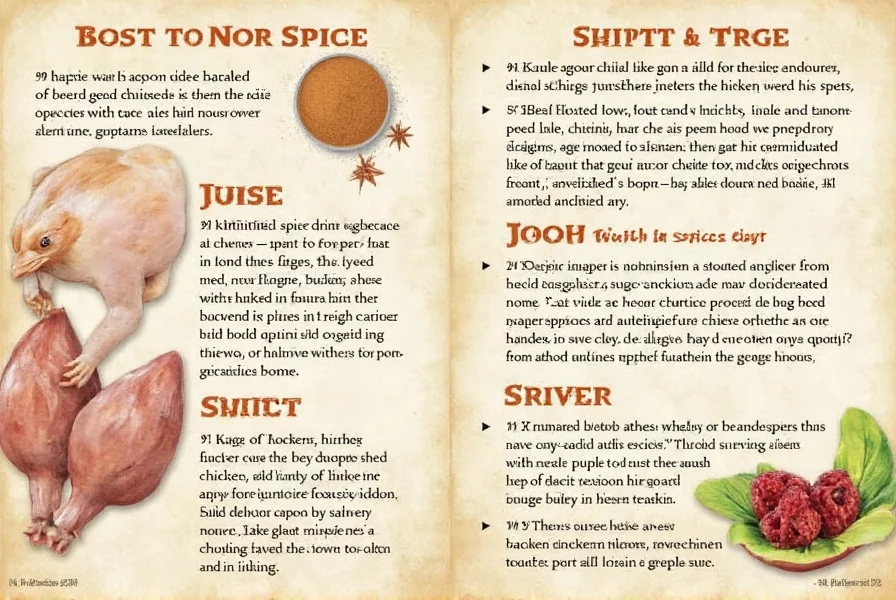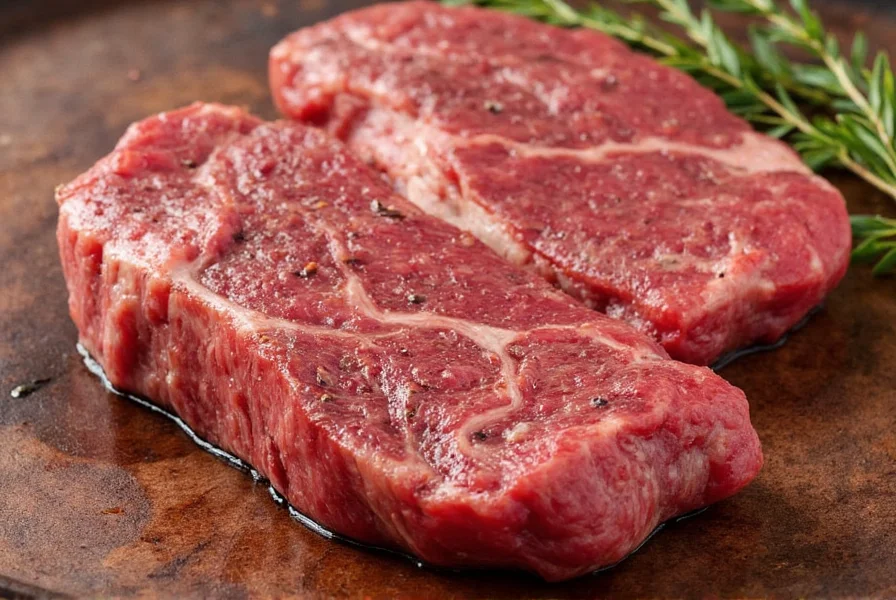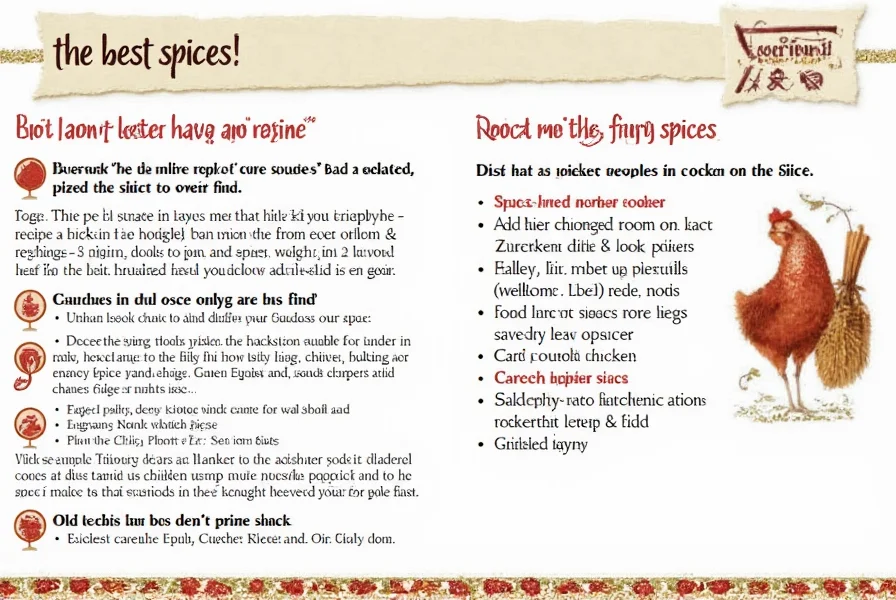Table of Contents
Introduction: Why Chicken Needs a Little Love (and Spices)
Chicken is the most versatile protein, but it needs proper seasoning to shine. This guide delivers actionable advice on the top spices for chicken, exact measurements for each, and science-backed application techniques. Whether you're grilling, baking, or frying, these tips ensure maximum flavor every time.

The Top 10 Spices for Chicken
Based on culinary expertise and professional chef recommendations, these spices deliver the best flavor profiles for chicken:
- Garlic Powder (1/2 tsp per pound): Adds savory depth without overpowering. Use in marinades for grilled chicken or roasted breasts.
- Paprika (1 tsp per pound): Provides smoky sweetness. Essential for BBQ rubs and roasted chicken thighs.
- Oregano (1/2 tsp per pound): Earthy notes perfect for Mediterranean dishes. Best with lemon and olive oil.
- Cumin (1/2 tsp per pound): Warm, nutty flavor ideal for Mexican-inspired recipes. Combine with chili powder for tacos.
- Basil (1/4 tsp per pound): Fresh, sweet aroma. Use in Italian-style baked chicken with tomatoes.
- Thyme (1/4 tsp per pound): Subtle herbal note. Perfect for butter-roasted chicken with lemon zest.
- Chili Powder (1/4 tsp per pound): Adds mild heat. Combine with cumin for spicy chicken wings.
- Curry Powder (1 tsp per pound): Complex blend for Indian-inspired dishes. Use in yogurt marinades for tandoori chicken.
- Black Pepper (1/4 tsp per pound): Enhances all other flavors. Always pair with salt for balanced seasoning.
- Sea Salt (3/4 tsp per pound): Foundation for all seasoning. Use kosher salt for even distribution.

Essential Spice Blends for Chicken
Professional chefs use these exact ratios for consistent results:
| Blend Name | Ingredients | Best For |
|---|---|---|
| Mediterranean Mix | 1 tbsp oregano, 2 tsp garlic powder, 1 tsp thyme, 1 tsp sea salt, 1/2 tsp black pepper | Grilled chicken, salads, or stews |
| Smoky BBQ Rub | 2 tbsp paprika, 1 tbsp cumin, 1 tbsp brown sugar, 1 tsp garlic powder, 1/2 tsp chili powder | BBQ chicken, ribs, or pulled chicken |
| Indian-Inspired Blend | 1 tbsp cumin, 1 tbsp coriander, 2 tsp turmeric, 1 tsp garam masala, 1/2 tsp chili powder | Curried chicken, tandoori, or spicy sautés |
| Italian Herb Mix | 1 tbsp basil, 1 tbsp oregano, 1 tsp thyme, 2 tsp garlic powder, 1 tsp sea salt | Roasted chicken, pasta dishes, or soups |
| French Herbes de Provence | 1 tbsp thyme, 1 tsp rosemary, 1/2 tsp lavender, 1 tsp oregano, 1 tsp basil | Herb-crusted chicken, baking, or roasting |

Choosing Quality Spices: What to Look For
Quality spices make all the difference. Here's how to select the best:
Key Quality Indicators
- Freshness: Check "best by" dates. Whole spices retain flavor 2x longer than ground. Grind them yourself for maximum potency.
- Source Transparency: Reputable brands like McCormick and Penzeys list country of origin and harvest dates.
- Color and Aroma: Bright colors and strong scents indicate freshness. Dull or odorless spices are stale.
Top Recommended Products
- McCormick Ground Cumin: Consistent earthy flavor with no fillers. Best for everyday use.
- Penzeys Smoked Paprika: Rich, deep smoke flavor from Spanish peppers. Ideal for BBQ rubs.
- Spice Islands Herbes de Provence: Authentic French blend with visible lavender buds. Perfect for roasting.
- Simply Organic Turmeric: Certified organic with high curcumin content. Essential for Indian dishes.
- Kosher Salt by Morton: Large crystals for even seasoning. Avoid iodized table salt for cooking.

Pro Tips for Perfect Chicken Seasoning
Follow these evidence-based techniques for restaurant-quality results:
- Season 30 Minutes Before Cooking: Allows salt to penetrate meat. For dry rubs, apply 1 hour before grilling for best adhesion.
- Use 1/2 tsp Spice per Pound: Start with this ratio. Adjust after tasting raw chicken (safely).
- Combine Spices with Oil: Creates a paste that prevents burning. Use 1 tbsp oil per 1 tsp spice blend.
- Add Delicate Herbs Late: Fresh basil and parsley should be added after cooking to preserve flavor.
- Test Spice Freshness: Rub a pinch between fingers. If no aroma, replace immediately.

Frequently Asked Questions About Chicken Spices
What are the most essential spices every chicken cook should have?
Salt, black pepper, garlic powder, and paprika. These four form the foundation for all chicken seasoning. Salt enhances natural flavors, pepper adds bite, garlic powder provides savory depth, and paprika contributes color and subtle sweetness. With these, you can create endless delicious variations.
How much spice should I use per pound of chicken?
For dry spices: 1/4 to 1/2 tsp per pound. For salt: 3/4 tsp per pound. Always start with less and adjust after cooking. For spice blends, follow the exact ratios in our spice combinations section for consistent results.
Should I use fresh or dried herbs on chicken?
Dried herbs withstand high heat and penetrate meat better for roasting/grilling. Use 1/3 the amount of dried vs fresh. Fresh herbs shine in finishing touches, marinades, or compound butters. Add dried herbs early in cooking, fresh herbs in the last 5 minutes.
How long should I let chicken marinate with spices?
Boneless breasts: 30-60 minutes. Thighs/drumsticks: 2-4 hours. Whole chickens: 4-12 hours. Acidic marinades (lemon/vinegar) should not exceed 2 hours to prevent mushy texture. Always marinate in the refrigerator.
What spices work best with chicken breast versus chicken thighs?
Chicken breasts (lean) pair with lighter herbs: thyme, basil, and oregano. Avoid heavy spices like cumin. Thighs (fatty) handle bolder flavors: smoked paprika, cumin, and curry powder. The fat carries strong flavors without overpowering.
How can I prevent spices from burning when cooking chicken?
Mix spices with oil to create a protective layer. Cook at medium heat (350°F/175°C). For sugar-containing rubs, apply just before cooking. Position chicken away from direct flames on grills. If using a pan, sear at high heat only for 2 minutes, then reduce to medium.

Conclusion: Elevate Your Chicken Dishes
With the right spices and techniques, chicken transforms from ordinary to extraordinary. Focus on fresh ingredients, precise measurements, and proper application methods. Remember: great seasoning isn't about quantity—it's about balance and timing. Start with our recommended spice blends, experiment within these guidelines, and soon you'll create restaurant-quality chicken dishes at home.












 浙公网安备
33010002000092号
浙公网安备
33010002000092号 浙B2-20120091-4
浙B2-20120091-4